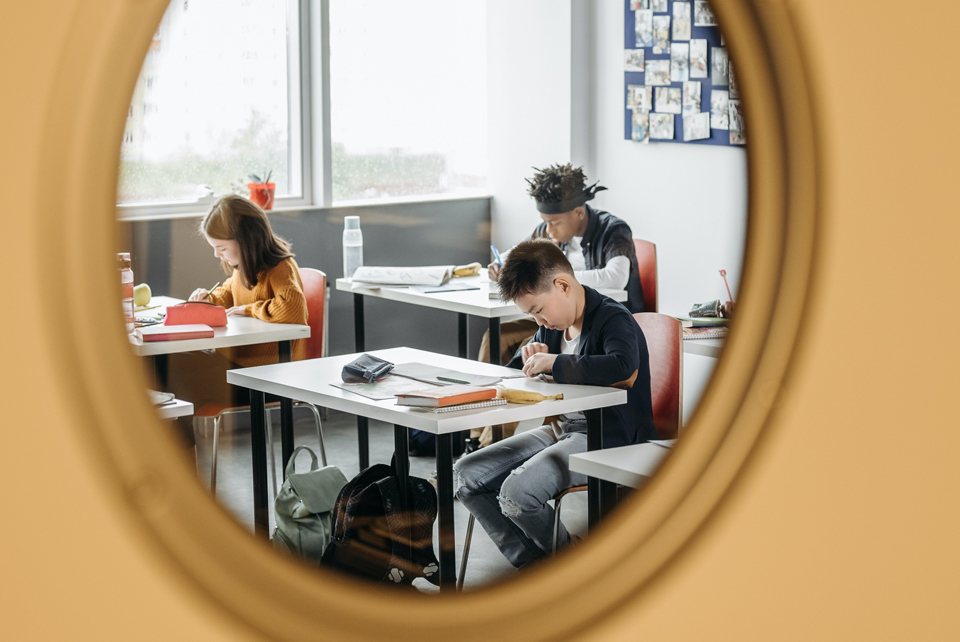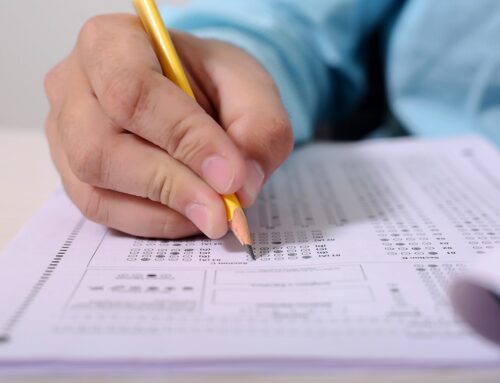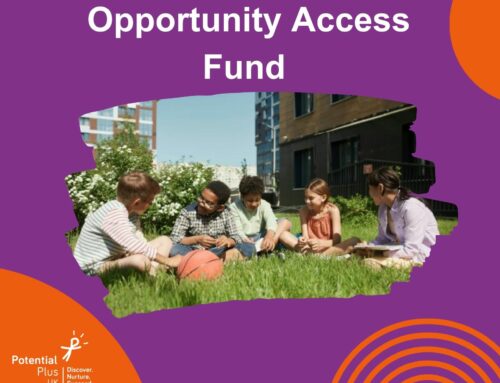Each child is different and one size will most definitely not fit all. The suggestions below are for parents and carers to consider, decide what is appropriate for their child and then visit potential schools ready to find a good fit for their child.
Before You Visit
Inspection Reports: have a look at the Ofsted or Independent Schools Inspectorate report.
- Note when the last inspection took place (many ‘outstanding’ schools have not been inspected for many years so much might have changed, including performance measures).
- Bear in mind that the report is a snapshot only, but will be useful to help you think about what you want to explore when you visit.
Scaled Scores: in primary schools, this represents attainment in SATs at the end Year 6.
- They do not give you any indication of progress.
- When looking at the average scaled score, consider the intake. In an affluent area, scores will be higher without necessarily reflecting the excellence of a school.
- A Scaled Score of 100 is average, and two-thirds of children score between 85 and 115.
- The last data available is from 2019 as SATs did not take place during Covid-19.
Progress 8 (P8) Scores: in secondary schools, P8 scores reflect the amount of progress learners make from their starting points based on Scaled Scores to their GCSE results.
- 0 is average. Working it out is complex – not all subjects/combinations of subjects count!
- If a school scores +1 (this is exceptional and rare) learners, on average, attain 1 grade higher at GCSE than expected. If a school scores –1, the learners achieve 1 GCSE grade lower than expected. 0.5 = half a grade, etc.
- + figures indicate that the school is adding value and the school is enabling learners to make better than expected progress
- A score of +0,5 means the school is ‘well above average’.
- Between 0 and +0.5 means the school is ‘above average’
- – figures indicate the learners are making less than expected progress
- Between 0 and –0.5 means the school is ‘below average’
- Below –0.5 means the school is ‘well below average’.
- The last data available is from 2019 as no data was published during Covid-19.
- https://www.compare-school-performance.service.gov.uk/schools-by-type?step=default&table=schools®ion=all-england&for=secondary&page=2 This link will take you to the Gov UK comparison website so you can look up individual schools and compare a number of schools against each other.
- Go to ‘Results by Pupil Characteristics’ and you can compare P8 scores for lower, mid and high prior attainers. This will give you an indication of the school’s success with high potential learners.
EBacc (English Baccalaureate) at Secondary School
- Schools are judged on the number of learners entering GCSE EBacc, i.e. English, Maths, Science, a language and History or Geography.
- In principle, this is a good idea for high potential learners, keeping doors open for A Level choices. However, for some learners this may not be a wise choice. For example, if a child wanted to study Music and Art, they are unlikely to meet the EBacc requirement (unless it is taken as an additional subject).
- EBacc is a school measure, it does not necessarily benefit learners.
- The school’s attitude to entering students for EBacc subjects at GCSE may tell you a lot about their attitude to prioritising the school’s needs or the child’s needs. Good practice would be to encourage high potential learners to opt for EBacc but to make individual judgements on what is best for each child.
A Level Performance System (ALPS) in the Sixth Form
- ALPs scores are calculated using GCSE results to predict expected A Level outcomes.
- You can find the average ALPs score using the same link as for P8.
- Grades 1-3 mean the school has matched the providers in the top 25%. Confusingly, this is represented as red!
- Grades 4-6 mean progress is broadly in line with the national averages. This will be black.
- Grades 7-9 means progress is in the lowest 25% nationally. This will be blue.
- You can look at the ALPs for individual subjects and as an average across all subjects.
- If the school does not use ALPS, ask what is used and request that they explain what it means.
Sciences in Secondary Schools
- It may be important to you and your child that the school offers Triple Science GCSE. This means that it will be possible to sit a separate GCSE in Physics, Chemistry and Biology which is essential to go on to study these subjects at A Level.
- Find out the numbers opting for each of the Sciences at GCSE and A level as this will give you an idea of how well it is taught.
- Ask how many girls, compared to boys, take each Science at GCSE and A Level.
Arts and Music
- Great schools will encourage engagement with the arts for all learners. It’s a sign that the school aims to nurture well-rounded young people who keep their options open for as long as possible. Learning in the arts will develop valuable skills, e.g. oracy, empathy, teamwork.
Setting and Streaming
- Schools’ approaches to setting and streaming vary, even in selective schools.
- Streaming refers to dividing learners into classes according to ability and they may stay in those classes for all subjects.
- Setting is a re-division of classes into ability groups for certain subjects only.
- Remember that streaming and setting will not solve the problem of differentiation! There will be a wide range of abilities and aptitudes in all classes.
School Code of Conduct
- This should be on the website.
- Look to see if it’s worded positively, e.g. ‘All members of the school community will be treated with respect” (not, “Shouting or swearing will not be tolerated”).
- Consider the expectations and whether these will be right for your child. For example, do you want them walking in single file silently between lessons? Would you prefer it if they were allowed to walk with a friend and chat on their way to the next lesson?
- What are detentions given for? Are you happy for your child to have a detention for forgetting a pen or homework? If a child misbehaves in class, what is the system of warnings and punishments? Do these seem proportionate?
Things To Look For When You Visit
- Attend both open evenings and open days. It’s easier to chat to teachers and look at the standard of work at Open Evenings but you also want to see lessons taking place.
- Talk to current learners as well as to teachers and support staff.
Visiting Classrooms – Consider
- Seating arrangements. Is the room laid out in a way that will allow for a range of activities and discussion in groups?
- Are learners working in silence? This is fine but should not be the case in all classrooms visited. Children need to discuss their learning, spark ideas off each other, consider different viewpoints, learn the skills of negotiation and compromise…
- Displays should be neat and attractive, valuing learners’ work. Displays do not need to be perfect as the process of learning and re-drafting often matters more than the outcome. Displays linked to learning are helpful, e.g. lists of conjunctives.
- Do the rooms look well-cared for and welcoming?
Other Areas
- Have a look at the toilets, the dining and recreational areas, the library, quiet spaces.
- Find out where children are not allowed as this can tell you a lot about the extent to which the school belongs to learners.
Meet Key People
- Try to talk to the headteacher as this is the person who sets the tone and ethos.
- Ask to meet the High Learning Potential Lead (More Able, Gifted and Talented).
- If relevant, speak to the SENCo (or Inclusion Lead) to find out how the school will support any additional needs your child may have.
- Have a look at the quality of work. This can be tricky without knowing something about the child but a flick through a range of books should give you an idea if:
- Children take pride in their work
- Teachers’ feedback is constructive and differentiated
- Different children are catered for at different levels of challenge
- It’s a good idea to seek out the Maths and Literacy Leads in primary schools.
- In secondary, talk to the Maths, Science and English Leads as well as teachers in all subjects (your child will take all subjects until GCSE options and interests change!)
- For Sixth Form, talk to students and teachers in all the subjects your child is interested in.
Key Stage 3
- Find out if Key Stage 3 is 2 or 3 years. Many schools start Key Stage 4 early, usually at the start of Year 9, to spend longer on GCSEs. High potential learners do not need this and current thinking is that a solid Key Stage 3, lasting from Year 7 to the end of Year 9, provides the best foundation for GCSE, allowing time for depth before narrowing the curriculum.
Ideas Of Questions To Ask
Provision for High Learning Potential
- Is the school a member of Potential Plus UK? Always good to advertise!
- Do you have someone who leads on provision for the more able? Would it be possible to talk to her/him?
- How do you identify the more able?
- Do you remove people from the register? This is not a good idea.
- What is your Progress 8 score for high prior attainers?
- Do you set in any subjects?
- What is your approach to challenging the most able?
- What is your policy on seating the most able together? This should happen at least sometimes so they have someone to talk to of a similar ability.
- What opportunities do you offer the most able outside the classroom? Enrichment is now called, ‘the co-curriculum’. It does not mean that there needs to be special events but you may want to explore what is offered and consider how well it meets your child’s needs.
- Do children have the opportunity to visit universities? In which year group? How do you decide which child goes where?
- My child loves XXX and is working beyond her/his chronological age. How would you cater for that?
- What’s your policy on Maths mastery? If you do use this approach, how flexible is this?
- Has a child ever been accelerated? Is this for specific subjects or across the board? How would you make that decision?
Well-being
- There is so much pressure on young people now, how do you support their well-being?
- My child sometimes struggles with XXX. What help and support will s/he get with this?
- Is there an opportunity for me to meet the SENDCo/other before my child joins the school?
- Is there a quiet area for children who need some time in a calm environment?
- My child may struggle with the transition to a new school. Do you offer anything to help?
- Who would I contact with any concerns?
Sixth Form
- Do you offer the EPQ? This is the Extended Project Qualification which is well-thought of by universities and is worth half an A Level. It involves research and can be completely unrelated to A level choices.
- How many A levels would my child be able to take? With the exception of Maths and Further Maths which complement each other so well, it is generally best to sit 3 A Levels. Universities will make offers based on 3 A Levels and 3 excellent results are better than 4 good ones. There are exceptions to the 3 A Level guidance, but few.
- What is your programme of careers advice and guidance?
- What support is there for the process of applying to university? How do you support Oxbridge candidates?
Questions to Ask the Children
- What do you love most about the school?
- Which subjects do you love? Are there any you don’t like much? Why is that?
- How do teachers really challenge the smartest children?
- What happens if someone is a bit naughty/off task in class? What if someone is really naughty/repeatedly misbehaves?
- Do you think the behaviour system is fair?
- How often do you get the chance to talk to others about your learning, e.g. discussion in class, debates, working in groups?
- What do you do at lunchtime? What are school lunches like?
- What happens if someone is bullied here? Do you know anyone who has been bullied?
- What clubs do you go to?
- If anyone is struggling and seems really unhappy, how are they helped?
- If someone is finding the work really hard, who would they go to?
- How are the loos?
- If you could change one thing about the school, what would that be?
About the Author: Joy Morgan was a senior leader in London schools until August 2021, responsible for professional learning and for high learning potential. She has helped many schools to develop their policy and to improve their practice for high potential learners. Joy is passionate about securing excellent outcomes for disadvantaged learners. Joy continues as a Trustee of Potential Plus UK.






